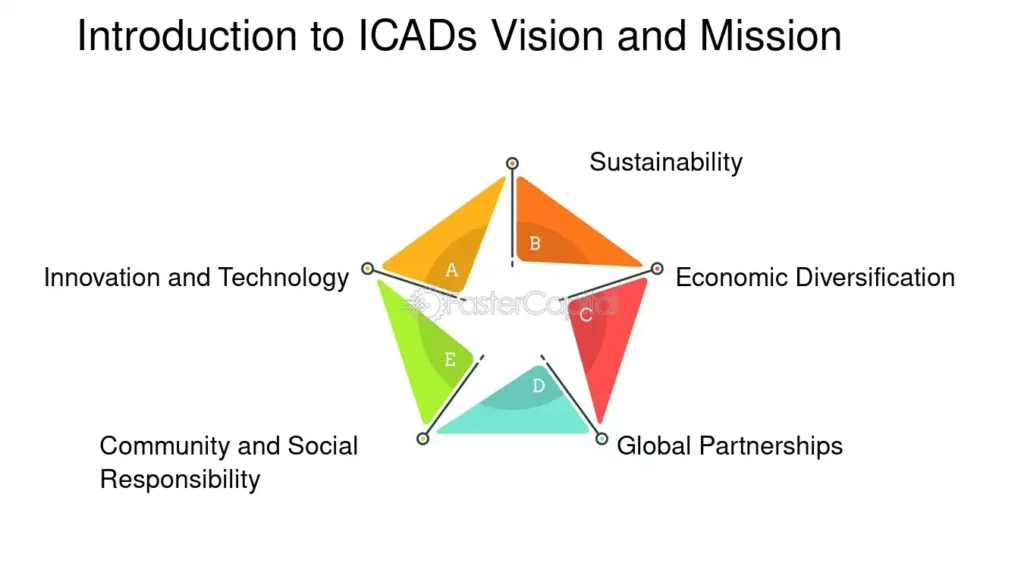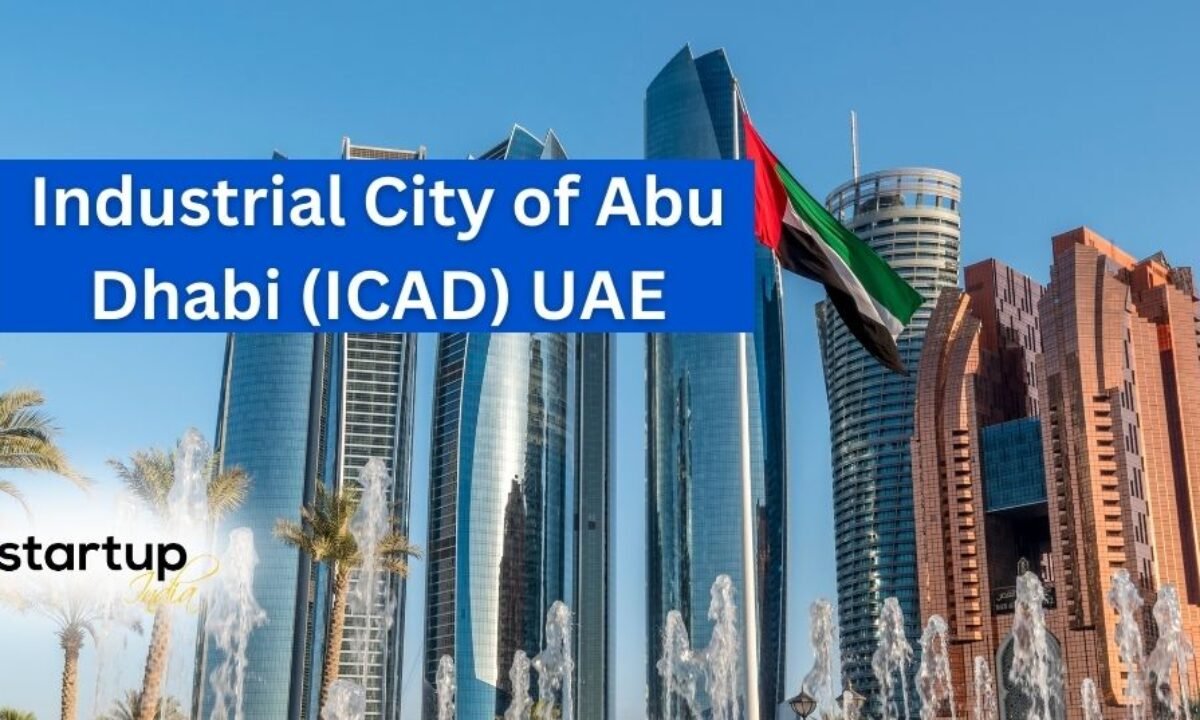The emirate of Abu Dhabi is known and in demand for its oil riches, futuristic infrastructure, and cultural importance for the United Arab Emirates. However, greater than skyscrapers and the extraordinary famous Corniche, Abu Dhabi is also dwelling respiratory ground of industry-the Indus trial City of Abu Dhabi, or ICAD. This is the unique monetary quarter of UAE where the state can steer itself faraway from oil dependency to a better sustainable and varied economy. Here’s an in depth blog on ICAD’s history, sectors, infrastructure, government projects, and the destiny it envisions.
Overview of Abu Dhabi’s Industrial City (ICAD)
The Industrial City of Abu Dhabi, typically known as ICAD, turned into specifically mounted with the view of helping the emirate’s vision of monetary diversification. ICAD is sited about 30 kilometers from the city middle of Abu Dhabi and is well located to capitalize on proximity to ports, airports, and other important logistical networks, including loose zones.
This ICAD location covers numerous rectangular kilometers, divided into wonderful clusters, each a unique industrial cluster. The challenge now not best draws foreign funding but also encourages neighborhood innovation, putting public and private stakeholders underneath one roof. World-elegance infrastructures and facilities are given to steel manufacturing, car, food processing, chemical, and logistics.
Development and History
As a part of its financial diversification application, which started gaining momentum during the early 2000s, the Abu Dhabi management anticipated that ICAD needed to be a linchpin. As long as records goes, the UAE changed into depending on oil exports, but it quickly realized that the direction it ought to take become the development of a sustainable, understanding-primarily based economy. The first section of ICAD become initiated in the year 2004 as part of this wide method aimed at attracting industrial funding and producing employment.
Since then, ICAD developed into five phases, which cover sectors as follows:
– ICAD I: Heavy industries and metallic manufacturing
– ICAD II: Automotive, electronics, and mild production
– ICAD III: Construction, logistics, and chemical industries
– ICAD IV: Emerging technologies and specialized industries
– ICAD V: Mixed-use tendencies of recent sectors aligned with sustainability
This phased improvement reflects ICAD’s dynamic approach to evolving marketplace developments and technological innovation.
Important ICAD Sectors and Industries

ICAD affords a platform for both neighborhood and worldwide businesses across a whole lot of industries. Some of the maximum distinguished sectors include:
- a) Heavy Industries and Steel Manufacturing**
Heavy industries form the center of Abu Dhabi’s industrial energy. Among the economic agencies listed under ICAD is Emirates Steel, which produces vital inputs to the development enterprise-rebar, metallic bars, and cord rods. This zone feeds into nearby infrastructure initiatives but additionally feeds international markets.
- b) Automotive and Aerospace Manufacturing
ICAD II has additionally turn out to be a key facility for the assembly of vehicle flora as well as suppliers of spare parts. Its proximity makes it suitable to cater to local call for for automobiles. Other corporations within the aerospace subject are also positioned right here. In this regard, it is part of the UAE’s imaginative and prescient to expand countrywide capacities in related aviation technologies.
- c) Food Processing and Packaging
Being a massive import hub, meals processing is a strategic industry for the UAE. ICAD gives sate-of-the art food manufacturing, packaging, and distribution centers. Companies on this sector are saved from the trouble of logistics hubs as sparkling produce and processed ingredients attain markets right away.
ICAD III puts its awareness within the chemical industries, the ones associated with petrochemicals and polymers. This segment tries to growth the oil legacy of the UAE with the aid of going upstream for extra introduced-fee products including plastics, paints and fertilizers.
- e) Renewable Energy and Advanced Technologies
ICAD IV pursuits to keep the destiny management of the UAE via the web hosting of groups that target renewable energy products, which includes sun panels and energy garage. This area is in addition characterised with the aid of the heavy presence.
- Strategic Location and Infrastructure
Khalifa Port:
A deep-water port which hyperlinks ICAD at once into the worldwide alternate network.
– Abu Dhabi International Airport:
Located strategically for air freight, handiest 30 minutes far from ICAD. . – The Etihad Rail Network: Once completed, the rail community will join ICAD to the UAE and the complete of the Arabian Gulf place for efficient logistics. The infrastructure inside ICAD is comparable, with a complicated network, superior road networks, warehouses, and software services. Water, strength, and waste control are designed to meet the demands of heavy industries whilst maintaining environmental sustainability. The available telecommunications infrastructure assist the virtual transformation of operations inside ICAD.
Government Initiatives and Investment Incentives
Part of the success of ICAD is attributed to the coolest enterprise surroundings provided by way of the UAE government. The business metropolis is under control with the aid of the Abu Dhabi Ports Group, for this reason easy going for walks and development of the zones. Some incentives to investors consist of:
– Tax exemptions: Companies primarily based at ICAD get 0 corporate and earnings taxes.
– 100% foreign ownership: Foreign funding is invited by using the UAE with the provision for one hundred percentage foreign possession in all sectors in ICAD.
Duty-unfastened imports : Raw materials and system for agencies to be installation at ICAD are imported duty-unfastened.
Business-friendly regulations: For the improvement of industries, ICAD enables them via fast-music licensing and streamlined authorities offerings. These rules have installed ICAD as the best place for both multinational businesses and local companies.
Employment and Workforce Prospects
Among the primary dreams that ICAD has set forth is the creation of jobs for Emiratis and expatriates. Local and worldwide resources – professional and semi-skilled labor – are employed to create a numerous workforce inside the numerous industries underneath its jurisdiction.
The involvement of locals inside the personal region is supported with the aid of the Emiratisation coverage through which the UAE authorities compels organizations to tackle and teach a certain percent in their employees as locals. Moreover, ICAD is taking part with academic establishments and technical schools to generate an engineering, manufacturing, and logistics expertise pipeline.
Environmental Aspects and Sustainability
This single precept towards sustainability is the guideline operation for the ICAD undertaking. The industrial zones are mounted with ecologically pleasant infrastructure to reduce the effect of industrial activities on the environment. These encompass:
– Energy-green buildings: that reduce power consumption.
– Waste control applications: for recycling and right disposal.
– Water conservation efforts: through the remedy and reuse of wastewater.
This is in addition obvious in many of the businesses engaged in the production of renewable strength device, together with solar panels and different green technologies.
Obstacles and Growth Possibilities
Like any industrial hub, ICAD has some challenges. Often raw materials must be imported. and may be limited in some industries. This is because world trade must stop at some point. Moreover, This presents a strategic challenge with competition from other industrial sectors in the region, such as Saudi Arabia.
Despite the obstacles, the potential for growth is enormous. Logistics advancements by the UAE and Etihad Rail’s expansion will further increase ICAD’s exposure in the domestic and international markets. This focus on technology is also consistent with other approaches. of the world in the sustainable development agenda To ensure that ICAD’s competitiveness and relevance.
Prospects and Vision for the Future
The role of ICAD in Abu Dhabi’s future economy cannot be overemphasized. The commercial metropolis turns into a cornerstone in the emirate’s transition right into a put up-oil economic system. Growth areas could be anticipated in:
– Artificial intelligence and automation: Smart technology integration into manufacturing processes
– Green power solutions: Towards attaining net-0 emissions by way of 2050 in the UAE.
– Smart logistics hubs: Applying information and generation for optimized drift of goods in movement.
The UAE’s futuristic method to innovation has ensured that ICAD is destined for business leadership within the Middle East.
Conclusion
The business metropolis of Abu Dhabi, ICAD is one of the flagship tasks of the UAE in the course of forward-wondering economic development. It’s through strategic planning, international-magnificence infrastructure, and a dedication to sustainability that ICAD has emerged as a model for business towns international. Attracting investments from round the arena and encouraging nearby innovation in Abu Dhabi will remain key to reaching monetary diversification and long-time period prosperity.
It will without fail be an necessary a part of Abu Dhabi’s destiny monetary envisioning as ICAD expands with new challenges. With different industries, a advanced talent staff, and retaining innovation at the forefront, this Industrial City of Abu Dhabi will become a worldwide commercial hub for decades ahead.
FAQS:
- What is ICAD?
The Industrial City of Abu Dhabi (ICAD) is a key industrial zone established to diversify Abu Dhabi’s economy. It consists of several industrial clusters, each focused on different sectors such as steel manufacturing, automotive, chemicals, and renewable energy. - Where is ICAD located?
ICAD is situated about 30 kilometers from Abu Dhabi city center, strategically close to major ports, airports, and logistics hubs like Khalifa Port and Abu Dhabi International Airport. - What are the main industries in ICAD?
The main industries in ICAD include: - Heavy industries (steel manufacturing)
- Automotive and aerospace
- Food processing and packaging
- Chemical industries (petrochemicals and polymers)
- Renewable energy and advanced technologies
- How is ICAD contributing to Abu Dhabi’s economic diversification?
ICAD helps reduce the UAE’s reliance on oil by promoting investment in non-oil sectors, fostering innovation, and creating jobs in industries like manufacturing, logistics, and renewable energy.









